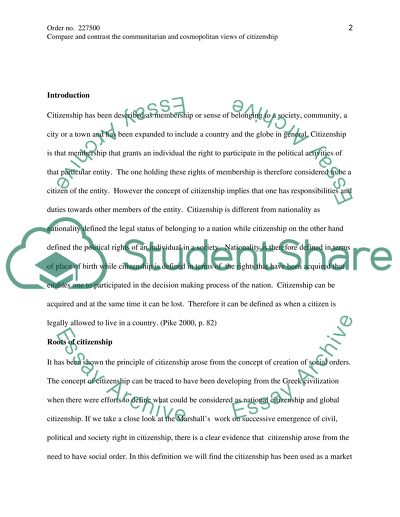Cite this document
(“Communitarian and Cosmopolitan VIews of Citizenship Essay”, n.d.)
Communitarian and Cosmopolitan VIews of Citizenship Essay. Retrieved from https://studentshare.org/miscellaneous/1509952-communitarian-and-cosmopolitan-views-of-citizenship
Communitarian and Cosmopolitan VIews of Citizenship Essay. Retrieved from https://studentshare.org/miscellaneous/1509952-communitarian-and-cosmopolitan-views-of-citizenship
(Communitarian and Cosmopolitan VIews of Citizenship Essay)
Communitarian and Cosmopolitan VIews of Citizenship Essay. https://studentshare.org/miscellaneous/1509952-communitarian-and-cosmopolitan-views-of-citizenship.
Communitarian and Cosmopolitan VIews of Citizenship Essay. https://studentshare.org/miscellaneous/1509952-communitarian-and-cosmopolitan-views-of-citizenship.
“Communitarian and Cosmopolitan VIews of Citizenship Essay”, n.d. https://studentshare.org/miscellaneous/1509952-communitarian-and-cosmopolitan-views-of-citizenship.


